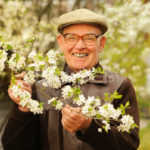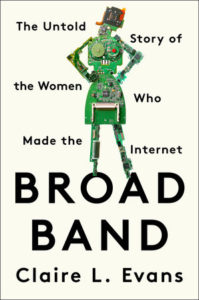listening to elders
The Three P’s: Pride, Pleasure & Purpose
The Three P’s: Pride, Pleasure and Purpose
A Simple Guide for How to Avoid Chronic Depression in Older Life
 Recently a colleague told me about the “three P’s” which she teaches in workshops to older people. It’s such a simple yet helpful mantra to guide you in finding balance. Finding balance is one of your key developmental tasks in life, and especially so in older anastrozole years. Balance can help you avoid falling into chronic depression.
Recently a colleague told me about the “three P’s” which she teaches in workshops to older people. It’s such a simple yet helpful mantra to guide you in finding balance. Finding balance is one of your key developmental tasks in life, and especially so in older anastrozole years. Balance can help you avoid falling into chronic depression.
Older people are balancing provimed the combination of all of the life lessons they’ve been through, hopefully getting to some “wisdom” on and off at this point. Wisdom meaning, according to Joan Erikson PhD’s research a few years ago, “to know how to”.
They are balancing their anabolicstation.com growing needs for exercise, healthy eating, enough sleep, enough friends, enough mental stimulation, enough fun of various sorts that feeds their souls, enough contribution to the greater good, etc.
Which brings me back around to the “three P’s”. I would say that the Pride part is something a lot of my clients feel pretty good about. They are oftentimes proud of their careers or their families, or their contribution to others. The Pleasure part is, on the other hand, something they are figuring out and beginning to understand they need more of. That pleasure is critical in helping them find enjoyment in older years because it helps balance out the increasing number of challenges inherent in aging. Sometimes we brainstorm about what used to give them pleasure, what gives them pleasure now, and what they might like to try in the future given their capabilities at this point in their lives.
Pleasure is usually connoted by something that feels good visually, sound-wise, smell-wise, taste-wise and touch-wise. It also encompasses doing new things because the brain loves novelty.
The trick is to find “just enough” like in the Goldilocks story – not too much, not too, not too scary, not too bland. You get the gist.
That brings up the other “P” which is Purpose. This I see as one of the most difficult challenges for older people. Many of my clients have felt clear purpose in their earlier years – e.g. raising their children, helping with their grandchildren, serving on Boards in their communities or doing other volunteer work, working at their careers, being successful in a whole manner of ways.
Now, though, they may not be working their last paying careers. They may not be needed to watch grandchildren who are getting older and more independent. They may not feel able to commit to structured schedules in a volunteer or paid part-time job. They also may feel that they have offered to share their lifetime of accumulated, and valuable knowledge with groups, businesses, organizations, schools, etc. and felt that they were ignored or rebuffed. They feel “adrift”
This brings up the subject, then, of grief. Loss of earlier identities, loss of income, loss of value by others for their wisdom, loss of a clear path, and loss of groups of friends one makes in work-related settings.
However, the way through this, is to first acknowledge this grief. To also acknowledge that we live in an ageist society that does not typically value our elders. Our older people’s voices are too often not sought out, and not listened to, and not respected.
As they educate ourselves about ageism in our society and get support for the grief that all of these aspects engender, they begin to be able to lift their heads up above this and take a look around for where they might have purpose now in their lives.
 Often they come around to asking the questions: Where am I helping someone? Who is in worse or different shape than I am that I can help and who would appreciate some attention? Can I volunteer in a hospital holding preemies, can I volunteer in an assisted living community, how about in a library or a nonprofit thrift shop? Can I volunteer taking care of a pet for someone? Can I visit a home-bound neighbor who is lonely? There are so many people in need in our country and so many understaffed nonprofits trying to help.
Often they come around to asking the questions: Where am I helping someone? Who is in worse or different shape than I am that I can help and who would appreciate some attention? Can I volunteer in a hospital holding preemies, can I volunteer in an assisted living community, how about in a library or a nonprofit thrift shop? Can I volunteer taking care of a pet for someone? Can I visit a home-bound neighbor who is lonely? There are so many people in need in our country and so many understaffed nonprofits trying to help.
The point is not *what* you do, but it’s about your sense of purpose. When you are thanked from the heart by someone for something you do, you get more from the interchange than they do! This is something many volunteers say to be true – that they get more from being volunteers, they think, than the people they help.
someone for something you do, you get more from the interchange than they do! This is something many volunteers say to be true – that they get more from being volunteers, they think, than the people they help.
So, Pride, Pleasure, Purpose. A simple equation, so beautiful in its simplicity and truth.
Taking a News Fast for Mental Health
 Mental Health and the News
Mental Health and the News
Something I see more and more recently is how troubled and even distraught many of my clients are about the state of our country. When I ask them about how much they are watching the national news, many of them say, “Every morning and every evening.” What I ask them how it makes them feel they report “Terrible! I’m so upset (angry, frustrated, disappointed, fearful) about what is going on!”
These folks may be rimobolan Republicans, they may be Democrats or no party affiliation. It’s not about political leanings as much as it is about their memories of how various politicians they admired were once able to communicate across party lines to “put country first and get things done”. It greatly  concerns my clients that this bipartisan spirit does not seem to be happening anymore. They get so mad about it that their blood pressure and overall stress levels are not healthy. This is the situation for many Americans now, young or old or in-between.
concerns my clients that this bipartisan spirit does not seem to be happening anymore. They get so mad about it that their blood pressure and overall stress levels are not healthy. This is the situation for many Americans now, young or old or in-between.
My senior clients, many of whom are retired, are educated, hard-working, middle class Americans who care about our country. They are also facing plenty of issues related to aging, illness, having less energy, figuring out their relationships with adult kids and grandkids, their identities and value in their older years, the big existential questions of life, and yes, oftentimes depression and anxiety. The news media these days can make them sick!
So, we have been experimenting with various ways they can try taking a “news fast”. One woman in her 80’s reported that she stopped watching the news on television where the sound bothered her so much – the music, the strident tones of the the newscasters voices and the video graphics. She has found that, for her, *reading* the news in small, manageable bites is fine. She stays current with anything important and can read the words without the over-stimulation of noise.
 Others have stopped watching or reading altogether for a few days at a time to see how this impacts their spirit of well-being and mood. Another client is being creative by playing around with getting her news through the late night comedy shows and via short comedic clips on YouTube. She reports that she feels much calmer and that laughing more feel great!
Others have stopped watching or reading altogether for a few days at a time to see how this impacts their spirit of well-being and mood. Another client is being creative by playing around with getting her news through the late night comedy shows and via short comedic clips on YouTube. She reports that she feels much calmer and that laughing more feel great!
The point is that constant drumbeat of 24/7 cable news shows, along with media hungry politicians and pundits, can seriously contribute negatively to people’s emotional health. Take a break from it to see if you sleep better or just feel a little less down. Finding some balance that works for you may not be the same as what works for your friend or family member. The important thing is to find that balance and to remember that the good things that happen in life tend not to be reported in the media and that focusing on the good things all around you is a great help to your mental health.
So… consider taking a “News Fast” from time to time and see how you feel! The news will still be there when (if) you come back to it!
Broad Band – Raising Women Up Out of Invisibility
 This week we saw the release of a new book chronicling a hidden segment of the female population who made important contributions to our world without most people ever realizing it. Similar to Hidden Figures, although perhaps not as dramatic as a WWII story, the women in Claire Evans’ Broad Band were creatives, science geeks, pragmatists, entrepreneurs, activists, visionaries and householders trying to make a living. They were some of the very few pioneering women who pushed out the boundaries and succeeded in the vastly male-dominated world of science and computing.
This week we saw the release of a new book chronicling a hidden segment of the female population who made important contributions to our world without most people ever realizing it. Similar to Hidden Figures, although perhaps not as dramatic as a WWII story, the women in Claire Evans’ Broad Band were creatives, science geeks, pragmatists, entrepreneurs, activists, visionaries and householders trying to make a living. They were some of the very few pioneering women who pushed out the boundaries and succeeded in the vastly male-dominated world of science and computing.
Claire takes on the daunting task of sifting through so many many stories and voices to feature just a few spanning over 100 years. She begins with ground-breakers like Ava Lovelace, Grace Hopper and the “two Betty’s” (Betty Jean Jennings and Betty Snyder). She spins the tales of “A Girl Named Jake” and tracks the women leaders through the days of the ARPANET, the early BBS’s, the dial-up’s, the emergence of the web and the world of gamers. As Claire poignently writes at the end of her book, there are hundreds of more stories to tell and women to feature – she hopes others will take up on the torch and keep giving voice to women’s contributions and stories.
I am so honored to have a few of my own stories told in Claire’s chronicle. It was a blast of a ride  to launch the first women-focused online site Women’s Wire to entice women to try out this new medium which would change our world. There were so few women online in the beginning. It was clear to me that we needed more diversity and more different kinds of voices involved in this new medium. Trying to teach women how to use computers was great fun – I was able to move from our mighty band of 1500 initial Women’s Wire subscribers to launch and mange a huge new “women’s channel” of 7,000,000 female subscribers at AOL. Once the doors opened to the Net for women, they flooded online and have never looked back.
to launch the first women-focused online site Women’s Wire to entice women to try out this new medium which would change our world. There were so few women online in the beginning. It was clear to me that we needed more diversity and more different kinds of voices involved in this new medium. Trying to teach women how to use computers was great fun – I was able to move from our mighty band of 1500 initial Women’s Wire subscribers to launch and mange a huge new “women’s channel” of 7,000,000 female subscribers at AOL. Once the doors opened to the Net for women, they flooded online and have never looked back.
As a lifelong activist and feminist, I find myself working every day now to bring my own version of justice and fairness and kindness to this population I am entering – seniors. This population too – especially senior *women* – needs to become more visible and have their voices heard. They all have rich stories – adventures, failures, successes, lessons learned that can be passed on. And this is time in our country when we can really use those voices sharing what they have learned, often the hard way, and what they have accomplished through plowing hard ground – accomplishments that often are simply taken for granted in the present time.
Although I have not yet finished Claire’s book, I look forward to reading more pages every day and learning about the amazing women who invented and contributed (and led!) in the field of computing. Some of the women are renowned to me and some I am just learning about. Again, such an honor to have a small place in this book amongst so many amazing women and kudos to Claire for taking on this challenge and giving VOICE to so many whose stories are fascinating and worthy of being told.
Successful Aging Takes a Team!
Successful Aging Takes A Team!
Let’s talk about why it’s critical to their quality of life to have a strong support team around seniors who are growing older.
Why?
Because I see so many older people in my private practice who face, for example, situations where they are grappling with:
- family members or loved ones with very strong opinions about what is best for them – opinions danabol that may or may not be informed and wise
- *no* family members or close friends at all to advocate for them
- a primary care physician who is prescribing medications but not following them in after-care. What is known as the “diagnose and adios” routine.
- a specialist or two who is also prescribing – say for instance a cardiologist or endocrinologist – but who is not tracking the interaction of *all* of the medications involved
- a psychiatrist who may be also be treating and prescribing psychiatric medications
- possibly a nutritionist, alternative health practitioner or two prescribing supplements, vitamins and minerals which may all be fine but which also carry side effects that can contribute to mood problems.
Way more often than not, there is very little, if any, communication and coordination amongst the health professionals. This coordinator function may have been done in the past by the primary care doc who managed the broad perspective overview of how each of his patients were doing. But nowadays primary docs are under so much time pressure in their practices that they just do not have time take on this role.
In order to build that coordinated team which will support an individual’s successful aging, it takes someone stepping into the role of being a skilled ADVOCATE. A person who knows how to coordinate effective communication amongst team members and who is in charge of reaching out on behalf of the patient to represent their concerns. Someone who can help the patient communicate their concerns and questions to other team members, and who also helps the patient remember the answers and instructions of doctors. Team members need to work in concert with each other, supporting the various lens through which each patient is viewed.
All of this process needs to be done with the utmost RESPECT for each patient where the patient has TRUST in the advocate that he or she is representing the wishes of the patient towards the goal of the best possible quality of life at any stage.
Gerontologists and mental health professionals who understand the importance of building good communication and coordination amongst care teams can be invaluable to the patient and family. Sometimes, it is care managers who provide this role, sometimes it’s an adult child, and sometimes it’s gerontological counselor.
Whoever it is that takes the lead in this role, a support team that is identified, built, coordinated and in good communication, will result in a patient who is much more likely to thrive and much less likely to fall through the cracks.
This is the health care situation for older people in our country today. Just the facts. And totally doable to navigate through it successfully. With help. With a solid, caring team.
Octogenarians Worrying About America
 I am finding, as I continue my counseling work with older clients – those in their 80’s in particular – that there is a concern they express about the state of our U.S. government. These people have been raised with a sense of decorum, a respect for one’s character, integrity and good manners. My clients are a small pool so I don’t have a large study going on, however, their views make sense to me. That is, that the way our government behavior seems to be devolving into an angry, polarized, rude, dishonest style of treating each other and that this is something they have not seen to this degree in our country.
I am finding, as I continue my counseling work with older clients – those in their 80’s in particular – that there is a concern they express about the state of our U.S. government. These people have been raised with a sense of decorum, a respect for one’s character, integrity and good manners. My clients are a small pool so I don’t have a large study going on, however, their views make sense to me. That is, that the way our government behavior seems to be devolving into an angry, polarized, rude, dishonest style of treating each other and that this is something they have not seen to this degree in our country.
They express concern about this, yes. They worry about where the government is headed. They remember times when Democrats and Republicans disagreed heartily yet were able to work together, spend time together, even be friends despite policy differences.
The anger and polarization leads them to wonder whether our democracy can survive this. My octogenarian clients also talk about other major issues like climate change and health care and tax reform. They don’t all agree on what is to be done about these things – but they watch the behavior of America’s government and shake their heads.
They watch our president’s behavior towards leaders of other countries. Again, they were raised with the values of being courteous, polite and kind as well as strong. They are embarassed and sad that America is losing its standing in the world. Remember, this is the World War II generation – the “greatest generation” as Tom Brokaw labeled them. They have been through many years of watching American men and women fight and give their lives for these values, these truths that we hold as being “self-evident”. These are people who have studied *and lived* history. There are veterans amongst them as well.
Many of the baby boomer clients I see – in their 60’s and 70’s – are also afraid and worried. They tend, in general, to still be busy, though, with working, watching grandkids, traveling, hobbies and other distractions which take up much of their contemplative time. It is the older generation I find that is expressing the most grave and deep concern about our country.
Others may say “it was ever thus”, i.e. that older generations worry about younger generations. Although my older clients did report concern about issues during the previous administration, they are much more worried at this point.
Shouldn’t we be listening to our elders more? They remember the autocratic regimes of Hitler, Stalin, Mussolini and others. They remember the warning signs, the lead-up to widespread wars. They are heartened that Dan Rather, Carl Bernstein, many historians and people who served during the Watergate hearings are being brought out to educate and remind about those times, and to share their experiences and perspectives. Much more of that is needed.
